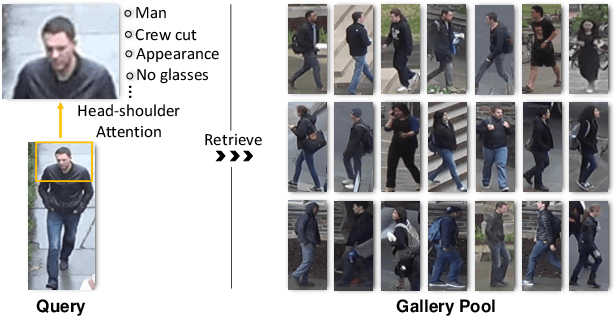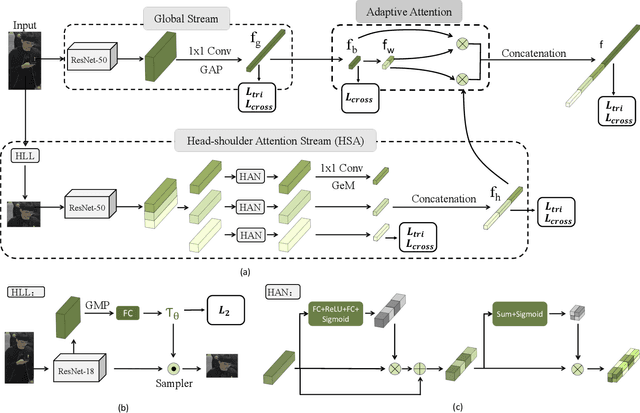Black Re-ID: A Head-shoulder Descriptor for the Challenging Problem of Person Re-Identification
Paper and Code
Aug 19, 2020



Person re-identification (Re-ID) aims at retrieving an input person image from a set of images captured by multiple cameras. Although recent Re-ID methods have made great success, most of them extract features in terms of the attributes of clothing (e.g., color, texture). However, it is common for people to wear black clothes or be captured by surveillance systems in low light illumination, in which cases the attributes of the clothing are severely missing. We call this problem the Black Re-ID problem. To solve this problem, rather than relying on the clothing information, we propose to exploit head-shoulder features to assist person Re-ID. The head-shoulder adaptive attention network (HAA) is proposed to learn the head-shoulder feature and an innovative ensemble method is designed to enhance the generalization of our model. Given the input person image, the ensemble method would focus on the head-shoulder feature by assigning a larger weight if the individual insides the image is in black clothing. Due to the lack of a suitable benchmark dataset for studying the Black Re-ID problem, we also contribute the first Black-reID dataset, which contains 1274 identities in training set. Extensive evaluations on the Black-reID, Market1501 and DukeMTMC-reID datasets show that our model achieves the best result compared with the state-of-the-art Re-ID methods on both Black and conventional Re-ID problems. Furthermore, our method is also proved to be effective in dealing with person Re-ID in similar clothing. Our code and dataset are avaliable on https://github.com/xbq1994/.
 Add to Chrome
Add to Chrome Add to Firefox
Add to Firefox Add to Edge
Add to Edge